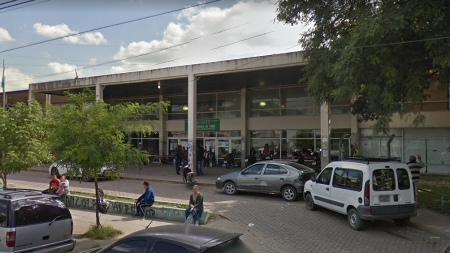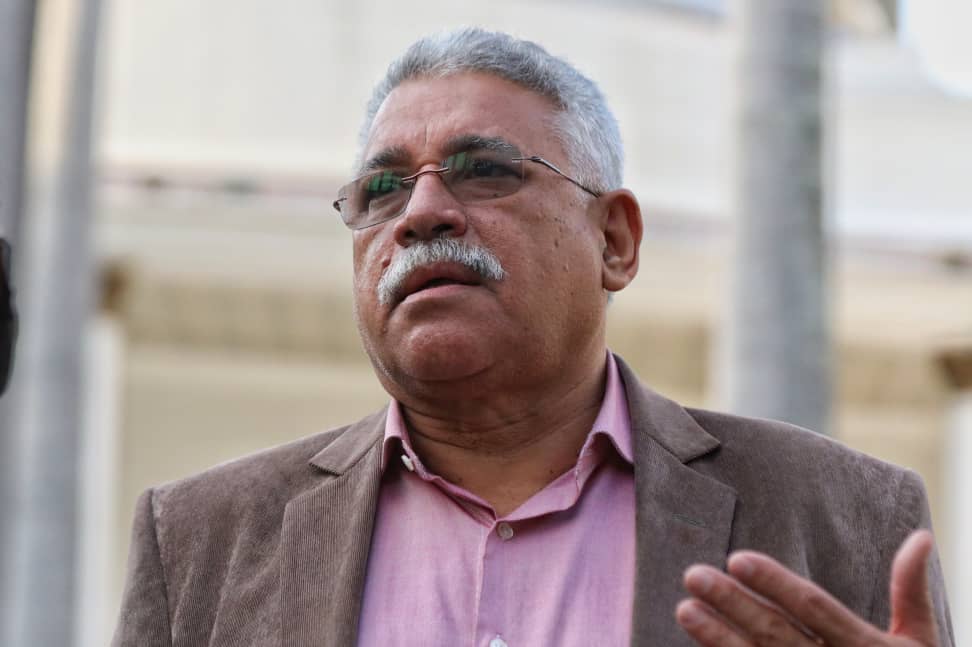The Provincial Director of Hospitals of the province of Buenos Aires, Juan Sebastian Rieraargued this Wednesday that the works plan undertaken by the Buenos Aires government for the sector aims “not only to expand the operating capacity of hospitals” but to build an infrastructure “that has more to do with the problems for which people demand ”.
“The transformation that hospitals are undergoing in their care model, moving from a care model based on specialties and diseases to a care model based on progressive care, must necessarily be accompanied by an adequate infrastructure for these processes”, highlighted the official in statements to Télam Radio.
Within this framework, Riera expanded that the works plan “involves intervening in existing structures”, which means “generate new areas and new physical spaces” so that all the tasks that the hospital services and hospital health teams “have been carrying out” can be carried out.
“The investment plan for hospital works in the province of Buenos Aires is in this sense,” Riera said, adding that what is being carried out in Buenos Aires hospitals “has to do with the modification, expansion and construction of new spaces and new sanitary infrastructure”.
The Director of Hospitals of PBA remarked that public health in the province of Buenos Aires “is one of the fundamental policies carried out by the governor’s administration (Axel) kicillof in the head of Nicholas Kreplakthe provincial Minister of Health” when indicating that it was “a priority that the governor raised, we did it during the pandemic and we will continue to do so.”
“We consider that Guaranteeing the right to health of all Buenos Aires is an absolute responsibility of the provincial State” he emphasized, for which reason “we continue to work hard” so that all Buenos Aires residents have “the same possibilities of access and the guarantee of being able to exercise the right to health equally”.

The PBA’s public hospital transformation plan proposes moving from a care model strongly focused on the disease and specialties “to a care model that has to do with progressive care and lines of care,” explained Juan Riera.
To this end, he insisted on the need to intervene in the existing structure and expand it in order to provide more and better service, in addition to the creation “of new structures such as we have in the case of modular hospitals, prompt care units, health reinforcement units”.
As an example of the new care model focused on the care that the patient needs, Riera explained that when people are admitted to the hospital, instead of going to the hospitalization of the corresponding service, “they are identified and weighted according to the level of care they need.
“If the person is slightly affected, they will go to minimal care, if they are moderately affected, they will go to intermediate care and if they are seriously affected, they will go to intensive care,” he graphed.
We delivered gynecological and perinatal care equipment to 70 hospitals and health centers in @BAprovincia for the prevention and diagnosis of cervical cancer. A historic investment to continue caring for the people of Buenos Aires. https://t.co/NQlmgF4isZ pic.twitter.com/DCFhjNhLlB
– SaludBAP (@SaludBAP) February 7, 2023
“This undifferentiated hospitalization has a space that contains it, which are wards, rooms, that have a level of care that the nursing team knows the periodicity with which they have to do their controls, that the laboratory knows the regular controls that they have to do laboratory”.
“We believe that guaranteeing the right to health of all Buenos Aires is an absolute responsibility of the provincial State.”Juan Sebastian Riera
And he added that patients will have “a good comfortable environment” to be able to assist at this level of care, “and an interdisciplinary team that will be able to accompany this process.”
At the Allende Hospital in #MarDelPlata For the first time and successfully, a pelvic ring stabilization surgery called “Galveston Technique” was carried out on a patient with polytrauma.?
✅ The operation was led by the Rachimedullary Unit. pic.twitter.com/gVcOWbR8CT
— Provincial Directorate of Hospitals (@HospitalesBAP) February 6, 2023
That is why, in the services of programmatic areas and health networks (SAPS) that articulate with the first level of care, which are the CAPS (Primary Health Care Center) and which in turn work lines of care that have to do with maternal and child health, with control of breast cancer, with control of colorectal cancer, with chronic degenerative diseases, with lines of care for cardiovascular diseases, “the health infrastructure has to account for that,” he summarized.


















